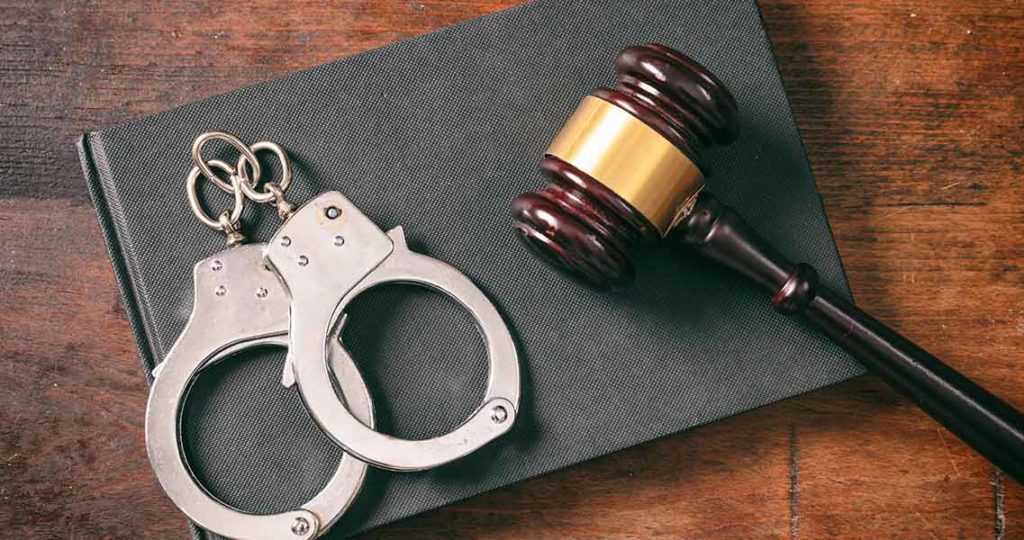Here is what you need to know about the first steps in a felony case.
A felony charge can be scary and anxiety-provoking and the mere allegations can have severe consequences. The more you know about the what happens in district court on a felony charge, the better decisions you can make in your defense.

I. The Criminal Activity and Police Investigation
The first step in a case is the police investigation. The police will begin collecting evidence and questioning potential witnesses. After the police have gathered as much information as possible about a crime, they will analyze the evidence and determine if, in their judgment, they should present their evidentiary package to a prosecutor. However, note that the police may arrest anyone if they can articulate facts amounting to probable cause, and of course, they can arrest anyone they see commit a crime. After the police investigate the case and if it goes to court, you will wonder, “what happens in district court on a felony charge?”
II. The Prosecutor’s Decision
The police do not choose who to charge; the prosecutor does. The prosecutor determines whether they have enough admissible evidence to file charges in court. If the prosecutor finds probable cause to believe the suspect committed the alleged offense, they authorize a warrant against the defendant.
III. The “Swear To,” Authorization, and Arrest in District Court
Once the prosecutor authorizes a warrant, a police officer takes the warrant to a district court judge or magistrate and “swears to” the warrant. The officer must make a record establishing probable cause for an arrest. If satisfied, the judge grants the warrant, and the police are entitled to make an arrest. If a case is not serious, the police may send a letter to the defendant or call them on the phone. If the police believe the defendant is a danger to the public, they will immediately find the defendant and arrest them.

IV. Booking When the Defendant is Arrested on a Felony
After an arrest, the police take the defendant to the police station in the city where the crime took place and “book” them. Booking means the officer photographs and fingerprints and gathers personal information about the defendant, assuming the defendant agrees to provide any information. After the police book the defendant, they are brought before a judge if the court is in session. If not, the defendant is jailed until a judge is available.
V. Arraignment on a Felony in District Court
When the police bring a defendant before a judge, the judge tells the defendant the charges and asks how the defendant pleads to the allegations. If a defendant refuses to say anything, the judge enters a “not guilty” plea. In the vast majority of cases, the defendant pleads not guilty. A “not guilty” plea is similar to a starting gun: it starts the adversarial legal process.
It is at this time that the judge addresses the bond. Frequently, the police will be questioned by the judge so the judge can assess what kind of bond to put in place. In particularly noteworthy or serious cases, the prosecutor will be present to attempt to ensure a bond is set, which will ensure the defendant stays in jail or will return to court when ordered. At this stage, the judge or magistrate also asks the defendant if they want a court-appointed attorney or if they will retain an attorney.
A defendant charged with a felony may plead guilty to a felony in district court (city or municipal courts). However, a circuit judge (county judge) must sentence the defendant on the conviction. District courts do not have the authority to sentence a defendant for a crime with a potential penalty of over one (1) year in jail.
After entering the plea, the judge or magistrate will determine the bond after hearing from the detective, the prosecutor (if present), and the defense lawyer (or the defendant if they are unrepresented). The best type of bond is called a personal bond. A personal bond does not require the deposit of money with the court or jail to secure the defendant’s release on bail. The judge or magistrate can also order a cash bond, a 10% bond, or a surety bond. Every type of bond will include various terms and conditions.

VI. Felony Probable Cause Conference in District Court
A probable cause conference (PCC) is a court date on which the prosecution and defense meet to discuss possible plea bargains, procedural matters, discovery, and bond issues. The PCC is required to take place 7-14 days after arraignment and happens in district court on every felony case charged in Michigan.
VII. Preliminary Examination in District Court
The preliminary examination is a hearing at which the prosecution must elicit testimony and produce evidence establishing a crime and probable cause to believe the defendant committed that offense. It must take place within 5-7 days of the PCC.
At the preliminary exam, the prosecution does not need to prove the case beyond a reasonable doubt. If the judge is satisfied that the prosecution has met its burden of proof, the case will be “bound over” to the circuit court in the county where the crime occurred.

Michigan’s Premier Felony Criminal Defense – We can help you understand what happens in district court on a felony case.
If you are a suspect in a criminal investigation or charged with a felony or misdemeanor, your situation is serious, and you must seek to protect yourself in the best way possible. If possible, you should avoid a criminal conviction because it will likely affect all aspects of your life for years. The Defense Team with LEWIS & DICKSTEIN, P.L.L.C. has been successfully defending clients in Michigan for decades, and we provide a free consultation and confidential case evaluation. Do not get railroaded! If you are wondering what happens in district court on a felony case, you can call us for a free consultation, and we will take the time to talk with you, answer your questions, and address each of your concerns.
Call us today at (248) 263-6800 for a free consultation or complete an online Request for Assistance Form. We will contact you promptly and find a way to help you.













